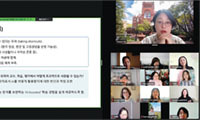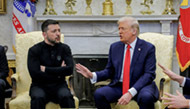JERUSALEM - In 1965, when Israel had no television and public entertainment consisted largely of kibbutz songfests celebrating the wheat harvest, the Beatles were booked for a concert here. To young Israeli fans, it seemed an impossible dream.
And so it was. The official permission required to withdraw precious foreign currency to pay the band was denied because a ministerial committee feared the corrupting influence of four long-haired Englishmen singing about pleasure. As its report said, “The Beatles have an insufficient artistic level and cannot add to the spiritual and cultural life of the youth in Israel.”
Since then, especially in recent years, Israel has expressed embarrassment about the episode and tried to make amends. Last January, it sent a letter to the remaining Beatles, Paul McCartney and Ringo Starr, asking forgiveness for the “missed opportunity” to have the band that “shaped the minds of a generation, to come to Israel and perform before the young generation in Israel who admired you and continues to admire you.” The artists were asked to consider again coming to perform.
Now Mr. McCartney has been booked for a huge outdoor concert in Tel Aviv on September 25. And nearly everything about the event - the $8 million price tag borne by a Israeli financier who expects to turn a profit, the tickets selling for hundreds of dollars on the Internet, indeed its very existence - is a parable of a nation transformed.
The promised concert has led many here to reflect on the cocooned simplicity of life only four decades ago. “I had just gotten my first LP record for my bar mitzvah from my two best friends, and it was by the Beatles,” recalled Yoel Esteron, 55, editor of the daily business newspaper Calcalist. “And then they canceled the concert. We still had no television and only official radio stations. We were living in a cultural ghetto; the country was Bolshevik. Teenagers and their parents debated it for weeks. Every teenager was furious.”
For Yossi Sarid, a leftist former Parliament member and government minister, the arrival of Mr. McCartney is an opportunity to set the story straight about his father, Yaakov Sarid, who was the director general of the Education and Culture Ministry and an official involved in canceling the original concert.
In an article in the newspaper Haaretz on August 25, Yossi Sarid said the real cause of the cancellation was a rivalry between impresarios . One had been offered a Beatles concert in 1962, before their star had risen, and had turned them down. When a competitor booked them three years later, the first impresario used his government connections to cancel the show.
The performers may have been known as the Beatles, but in Israel, then still trying earnestly to create a culture buffered from foreign words and influence, they were Hipushiot Haketzev, or the Beat Beetles.
Mr. Sarid said he was grateful to the musicians. Thanks to their canceled concert, he said, his father, a great educator and modest man whose accomplishments would have long ago been forgotten, has earned an eternal place in Israeli history.
스마터리빙
more [ 건강]
[ 건강]이제 혈관 건강도 챙기자!
[현대해운]우리 눈에 보이지 않기 때문에 혈관 건강을 챙기는 것은 결코 쉽지 않은데요. 여러분은 혈관 건강을 유지하기 위해 어떤 노력을 하시나요?
 [ 건강]
[ 건강]내 몸이 건강해지는 과일궁합
 [ 라이프]
[ 라이프]벌레야 물럿거라! 천연 해충제 만들기
 [ 건강]
[ 건강]혈압 낮추는데 좋은 식품
[현대해운]혈관 건강은 주로 노화가 진행되면서 지켜야 할 문제라고 인식되어 왔습니다. 최근 생활 패턴과 식생활의 변화로 혈관의 노화 진행이 빨라지고
사람·사람들
more많이 본 기사
- 남가주 전역에 ‘물폭탄’… 성탄 연휴 ‘대혼란’
- [2025년 한 해 ‘진 별’들] 미주 한인사회 원로들 ‘역사의 뒤안길’로
- 체포 불체자 수만명 물류창고에 수감 추진
- 여성 살해·자녀 납치 한인 ‘수배’
- 한인타운 한복판 주유소서 강도 ‘칼부림’
- “소변 불편한데 주저하다 방광 망가져”
- ‘라스베가스에서 만난 한인들’
- 크리스마스 연휴 음주운전 ‘꼼짝마’
- 우크라이나도 “Merry Christmas!”… 지구촌 성탄 축하
- “대학 학자금 상환 안하면 임금 압류한다”
- 새해 더 건강해지기 위한 의사의 과학적 조언 10가지
- 난방기 뜯자 ‘비밀공간’ 은신 마피아 보스 체포
- 한인 박찬영씨 총격살해범은 백인 군인...살해범 “박씨 차량이 끼어들어 시비가 붙어 결국 총쐈다”
- H-1B ‘10만 달러 수수료’ 연방법원, 이의소송 기각
- “한반도 평화정착에 앞장선다”
- 서태지, 딸·엘리와 1년 만에 근황 “좋은 소식 없어 안타까워”
- CBS가 보류한 ‘불법체류자 추방’ 보도, 캐나다서 원본 유출
- 시애틀 주택시장 내년 거래 회복될 듯...거래는 회복되겠지만 가격은 ‘정체’될 것으로 예상돼
- VA 페어팩스 카운티 실업자 급증
- 선우용여 “아들, 돈 없어 개밥 먹기도..아파트 마련해줬다”
- 테슬라, “비상사태 시 차문 안 열려”
- 트럼프 ‘전쟁할 결심’?… 미군 특수부대 카리브해 이동
- 한국외대·연세대·한양대 GCEO 연합골프대회 성황
- 역주행 승용차 덮쳐 한인 등 2명 사망
- 시택공항서 “내 이름이 뭔가요” 캠페인...가짜 차량공유 범죄 예방 위해 캠페인 시행키로
- LA 마약조직 집중 단속 갱단원 등 수백명 체포
- 조지아 역주행 사고, 한인 남편 이어 임신 아내·태아 사망
- 최준희, 엄마 故최진실 생일 맞아 추억 “우리 마미 축하”
- 북한인, 아마존 위장취업 대거 적발
- 서유리, ♥법조계 남친 데이트 신청에 두근.. “돈은 내가 낸다”
- 원·달러 환율, 당국 개입에 42원 폭락
- 피클볼이 바꾸는 부동산의 얼굴
- 트럼프, 李대통령에 ‘백악관 황금열쇠’ 선물… “최고의 협력관계”
- 뉴욕시 최저임금 인상⋯ 1월1일부터 17달러
- 백악관, 군에 “베네수엘라 원유 격리하라” 총력 지시
- 국방부 “中, 美 안보 위협할 군사력 보유…본토 갈수록 취약”
- 우크라, 20개항 종전안 최신판 공개…영토 할양은 ‘미해결’
- ‘이정후 위엄’ SF CEO+사장+단장+감독→韓 총출동! 황재균·윌리 아다메스까지 선행 참여
- “음주운전 대신 15불 할인하는 리프트 타세요”
- 로비 단서 혹은 과대포장?…3천쪽 통일교 내부문건 살펴보니
- 쿡, 나이키 주식 매입 2005년부터 사외이사
- 중산층이 집을 사지 않는다?… 챗GPT가 내다본 주택시장 미래
- 팀 쿡 애플 CEO, 나이키 주식 43억원어치 매입…나이키 주가↑
- ‘소득세’없었던 워싱턴주에 소득세?...밥 퍼거슨 워싱턴주지사, ‘백만장자 소득세’ 공개 지지
- 산타 한반도 다녀가셨네…성탄절 밤하늘 제주-서울 돌고 평양행
- [스티브 강 ‘인사이드 미국’] 2026 중간선거: 트럼프 지지율 하락이 말해주는 것
- ‘박지윤과 이혼’ 최동석, 두 자녀와 데이트.. “기적 같은 일”
- [성탄절 앞둔 우울한 경제상황] ‘내 코가 석자’… 기부 급감
- “트럼프특사, 벨라루스 정상과의 협상수단으로 살빼는약 동원”
- 뉴욕한국라이온스클럽· 뉴욕한인합창단 한 해 마무리 합동 송년회 성황
1/5지식톡

-
 미 육군 사관학교 West Poin…
0
미 육군 사관학교 West Poin…
0https://youtu.be/SxD8cEhNV6Q연락처:wpkapca@gmail.comJohn Choi: 714-716-6414West Point 합격증을 받으셨나요?미 육군사관학교 West Point 학부모 모…
-
 ☝️해외에서도 가능한 한국어 선생님…
0
☝️해외에서도 가능한 한국어 선생님…
0이 영상 하나면 충분합니다!♥️상담신청문의♥️☝️ 문의 폭주로 '선착순 상담'만 진행합니다.☎️ : 02-6213-9094✨카카오톡ID : @GOODEDU77 (@골뱅이 꼭 붙여주셔야합니다…
-
 테슬라 자동차 시트커버 장착
0
테슬라 자동차 시트커버 장착
0테슬라 시트커버, 사놓고 아직 못 씌우셨죠?장착이 생각보다 쉽지 않습니다.20년 경력 전문가에게 맡기세요 — 깔끔하고 딱 맞게 장착해드립니다!장착비용:앞좌석: $40뒷좌석: $60앞·뒷좌석 …
-
 식당용 부탄가스
0
식당용 부탄가스
0식당용 부탄가스 홀세일 합니다 로스앤젤레스 다운타운 픽업 가능 안녕 하세요?강아지 & 고양이 모든 애완동물 / 반려동물 식품 & 모든 애완동물/반려동물 관련 제품들 전문적으로 홀세일/취급하는 회사 입니다 100% …
-
 ACSL 국제 컴퓨터 과학 대회, …
0
ACSL 국제 컴퓨터 과학 대회, …
0웹사이트 : www.eduspot.co.kr 카카오톡 상담하기 : https://pf.kakao.com/_BEQWxb블로그 : https://blog.naver.com/eduspotmain안녕하세요, 에듀스팟입니다…
케이타운 1번가
오피니언
 스티브 강 전 한인민주당협회 회장
스티브 강 전 한인민주당협회 회장 [스티브 강 ‘인사이드 미국’] 2026 중간선거: 트럼프 지지율 하락이 말해주는 것
 김홍일 케이유니콘인베스트먼트 대표
김홍일 케이유니콘인베스트먼트 대표 [기고] 안정의 기준은 어떻게 제도가 되었나
 유혜미 한양대 경제금융대학 교수
유혜미 한양대 경제금융대학 교수 [유혜미 칼럼] 치솟는 환율, 경제 지표의 역설
 성민희 소설·수필가
성민희 소설·수필가 [윌셔에서] 우리 안의 ‘생각하는 사람’을 깨울 시간
 김정곤 / 서울경제 논설위원
김정곤 / 서울경제 논설위원 [만화경] 해수부 부산시대

[왈가 왈부] 내란재판부·정통망법 또 수정… 졸속·땜질 아닌가요
 정숙희 논설위원
정숙희 논설위원온라인쇼핑과 반품, 그리고 그 이후
 파리드 자카리아 / 워싱턴포스트 칼럼니스트 / CNN ‘GPS’ 호스트
파리드 자카리아 / 워싱턴포스트 칼럼니스트 / CNN ‘GPS’ 호스트 트럼프의 새 독트린 “미국을 다시 왜소하게”
 김동찬 시민참여센터 대표
김동찬 시민참여센터 대표 [미국은 지금] MAGA의 분열, 예견된 균열의 시작
1/3지사별 뉴스

“온 세상에 평화를⋯”
숨가쁘게 달려온 2025년을 이제 1주일 남짓 남긴 채 크리스마스 이브를 맞는다. 다사다난했던 한 해를 되돌아보며 마무리하는 연말 시즌과 크리…
H-1B비자 고임금·경력자에 우선권

“한반도 평화정착에 앞장선다”
민주평화통일자문회의 미주지역회의(부의장 이재수)는 22일 기자회견을 통해 내년도 활동 방향과 목표를 밝혔다. 이재수 부의장은 “미주지역회의는…
VA 페어팩스 카운티 실업자 급증

한인들 위한 무료 법률 상담회 개최
샌프란시스코 베이지역 한인회(회장 김한일)는 지난 20일 한인회관에서 북가주 지역 한인들을 위한 무료 법률 상담회를 개최했다. 이날 행사에는 …
여성 살해·자녀 납치 한인 ‘수배’

오늘 하루 이 창 열지 않음 닫기 





















































.png)


댓글 안에 당신의 성숙함도 담아 주세요.
'오늘의 한마디'는 기사에 대하여 자신의 생각을 말하고 남의 생각을 들으며 서로 다양한 의견을 나누는 공간입니다. 그러나 간혹 불건전한 내용을 올리시는 분들이 계셔서 건전한 인터넷문화 정착을 위해 아래와 같은 운영원칙을 적용합니다.
자체 모니터링을 통해 아래에 해당하는 내용이 포함된 댓글이 발견되면 예고없이 삭제 조치를 하겠습니다.
불건전한 댓글을 올리거나, 이름에 비속어 및 상대방의 불쾌감을 주는 단어를 사용, 유명인 또는 특정 일반인을 사칭하는 경우 이용에 대한 차단 제재를 받을 수 있습니다. 차단될 경우, 일주일간 댓글을 달수 없게 됩니다.
명예훼손, 개인정보 유출, 욕설 등 법률에 위반되는 댓글은 관계 법령에 의거 민형사상 처벌을 받을 수 있으니 이용에 주의를 부탁드립니다.
Close
x